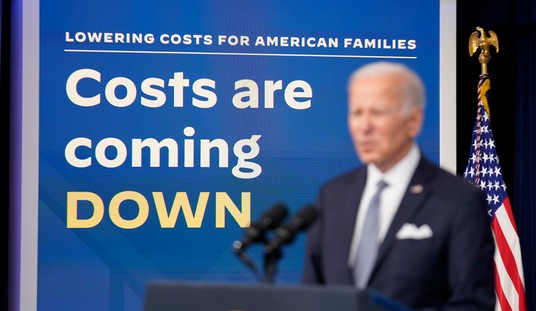The Left is freaking out over the Trump administration's latest proposal over immigration. It was pretty much captured in the explosive exchange between CNN’s Jim Acosta and senior Trump aide Stephen Miller in the White House pressroom last week. Acosta was not pleased that the green card overhaul the Trump administration is trying to make is centered on language requirements and an emphasis on high skilled labor. Sens. David Perdue (R-GA) and Tom Cotton (R-AR) are leading the effort.
Called the Reforming American Immigration for Strong Employment (RAISE) Act, it seeks to do the following:
-Establish a Skills-Based Points System. The RAISE Act would replace the current permanent employment-visa system with a skills-based points system, akin to the systems used by Canada and Australia. The system would prioritize those immigrants who are best positioned to succeed in the United States and expand the economy. Applicants earn points based on education, English-language ability, high-paying job offers, age, record of extraordinary achievement, and entrepreneurial initiative.
-Prioritize Immediate Family Households. The RAISE Act would retain immigration preferences for the spouses and minor children of U.S. citizens and legal permanent residents while eliminating preferences for certain categories of extended and adult family members.
-Eliminate the Outdated Diversity Visa Lottery. The Diversity Lottery is plagued with fraud, advances no economic or humanitarian interest, and does not even promote diversity. The RAISE Act would eliminate the 50,000 visas arbitrarily allocated to this lottery.
-Place a Responsible Limit on Permanent Residency for Refugees. The RAISE Act would limit refugees offered permanent residency to 50,000 per year, in line with a 13-year average.
The law is primarily for those applying for permanent legal residency. Those in the H-2A, H-2B, and H1-A programs, like agricultural workers, will not be impacted by this legislation. It should also be noted that the bill would allow anyone with high skills to apply for residency, disregarding the caps on immigration, which the Trump administration feels are obsolete. Nevertheless, it came from the Trump White House; therefore, it’s a vessel for evil to its opponents, especially the Left. Yet, there was a black Democratic congresswoman for Texas, Barbara Jordan, who proposed similar recommendations to overhaul our immigration system under the Clinton administration. And down memory lane we go (NYT c. 6/7/95):
Recommended
Barbara Jordan, chairwoman of the panel, the Commission on Immigration Reform, delivered the plan to President Clinton, and he congratulated the panel. "Consistent with my own views, the commission's recommendations are pro-family, pro-work, pro-naturalization," he said.
Mr. Clinton said the panel had "laid out a road map for Congress to consider." His press secretary, Michael D. McCurry, said that "the President indicated to Barbara Jordan today that he will support such reductions," which would represent the biggest change in immigration policy in more than 40 years.
In addition, Mr. Clinton said the proposal "appears to reflect a balanced immigration policy that makes the most of our diversity while protecting the American work force so that we can better compete in the emerging global economy."
Even former Clinton cabinet members agree with the high skilled labor provision, even Canada and Australia have similar systems (via NRO):
[Speaker of the House Paul] Ryan also backed the little-noticed tenth of Trump’s ten points in his Phoenix speech: shifting legal immigration from extended-family reunification, mostly of low-skilled immigrants, and setting aside many more places for high-skilled immigrants “based on merit, skill, and proficiency.” That resembles the point systems of Canada and Australia. As law professor F.H. Buckley points out, Canada, with one-tenth the U.S. population, admits about 160,000 immigrants yearly under economic categories — more than the U.S.’s 140,000.
As a result, immigrants in Canada, unlike here, have incomes above, not below, the national average. Some serious Democrats agree with Trump. “Our immigration laws should be reoriented to favor immigrants with higher skills,” wrote Clinton administration policymaker William Galston in the Wall Street Journal on November 2. Lawrence Summers, treasury secretary under Bill Clinton and economic adviser to Barack Obama, called for more high-skilled immigration in an American Enterprise Institute talk November 4.
Democrats have seen the merit-based system as a point of compromise, as the Times reported in May of 2007 on yet another immigration bill that was hashed out between Democrats and Republicans, including the late Sen. Ted Kennedy (D-MA) and now ex-Sen. Jon Kyl (R-AZ)—and the politics of it all from within the two respective camps were the same as well.
At the heart of the bill is a significant political trade-off. Democrats got a legalization program, which they have sought for many years. Republicans got a new “merit-based system of immigration,” intended to make the United States more competitive in a global economy.
But the politics of the deal are precarious. Democrats are already trying to tamp down concerns of Hispanic groups, who fear that the bill would make it more difficult for immigrants to bring relatives from abroad. At the same time, Republican negotiators face blistering criticism from some conservatives, who say the bill would grant a virtual amnesty to people who had broken the law.
Flash-forward to 2013, it was included in the doomed Gang of Eight immigration package (via NYT):
The sweeping immigration bill that a bipartisan group of senators is preparing will include a major new merit-based program for foreigners to become permanent legal residents based on their work skills, including both high-skilled and blue-collar workers, according to people familiar with a draft of the legislation.
Over time the program, just one piece of the bill, would open up many new opportunities for foreigners to settle in the United States based on their skills, a shift from the focus on family ties that is the main foundation of the current immigration system.
But the bill will also include a host of measures to eliminate, over 10 years, a backlog of 4.7 million immigrants who have applied to come here legally and have been languishing in the system, waiting for permanent resident visas known as green cards. As a result, during the next decade, millions of immigrants who have been waiting patiently for legal documents will be united with their family members here.
Shocker—the high skilled labor provision is not new. It’s not un-American. It’s not racist. And it’s been supported and accepted by both parties as something that should be part of immigration reform—as it should. As guy noted, the core provisions of the RAISE Act are popular.
***
Addendum: The Washington Times’ Stephen Dinan also noted the similarities between the bills, noting that pretty much Democrats are against it because Trump backed it:
One Democratic leader called it “anti-immigrant,” and another called it a betrayal of the principles of the Statue of Liberty.
The crux of the bill, sponsored by Republican Sens. Tom Cotton of Arkansas and David Perdue of Georgia and embraced last week at the White House by Mr. Trump, would trim the broad range of family relationships that qualify for immigration and inject a government screen for needed skills and English proficiency into employer immigration.
The bill also would nix the diversity visa lottery that annually doles out some 55,000 green cards — signaling legal permanent immigration — based purely on chance.
All three proposals were staples of the 2007 immigration bill and were again reflected in the 2013 bill backed by Democrats from President Obama down.
























Join the conversation as a VIP Member